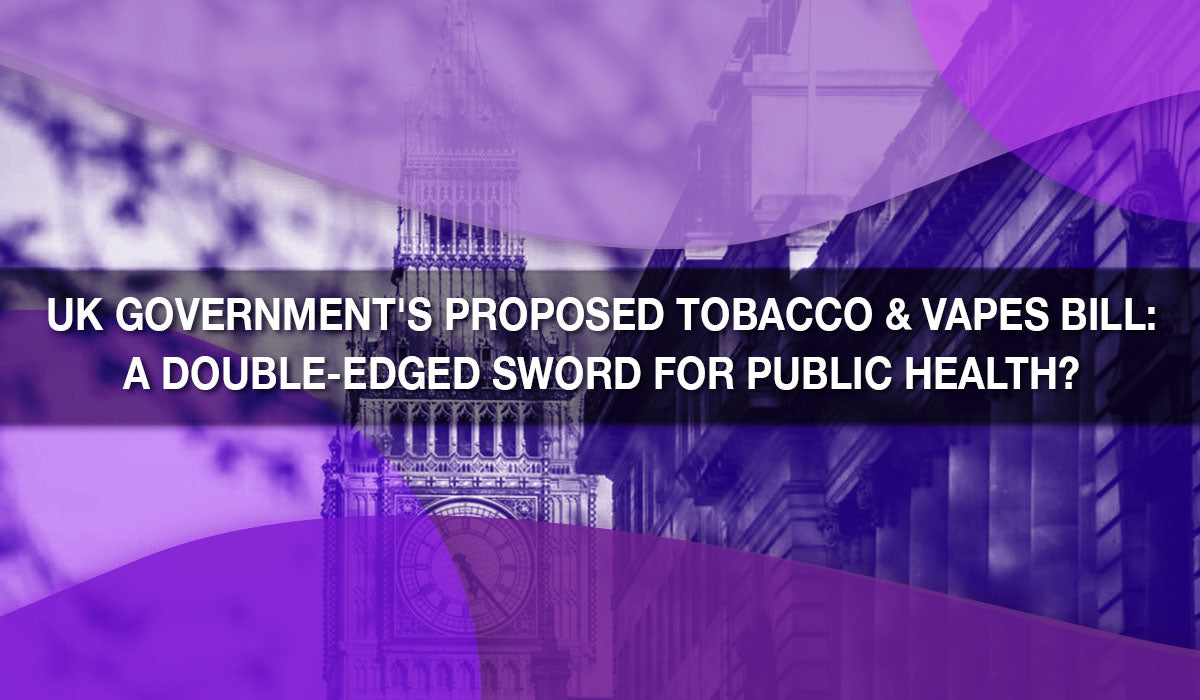
UK Government's Proposed Tobacco & Vapes Bill: A Double-Edged Sword for Public Health?
In a significant move this year, the UK government reintroduced amendments to the Tobacco & Vapes Bill, which promises to reshape the landscape of nicotine products in the country. Building on policies first proposed by a prior administration, the bill includes ambitious measures: a generational ban on smoking, stricter regulations on vape and nicotine pouch flavors, packaging, and display, and a complete ban on disposable vapes. While the government cites youth health and safety as its driving force, some public health experts and advocates for tobacco harm reduction worry about the unintended consequences of these new rules.
Disposable Vapes: A Crucial Tool for Smokers Looking to Quit
A primary point of contention is the ban on disposable vapes. Experts in smoking cessation and tobacco harm reduction argue that disposable vapes serve as an essential bridge for smokers looking to quit. These devices offer an affordable, accessible, and user-friendly alternative to traditional cigarettes. Unlike refillable vape kits, disposables require no charging, refilling, or technical expertise, making them ideal for those new to vaping—especially older adults or individuals from lower-income backgrounds who may feel intimidated by complex devices.
Data from the Consumer Choice Center shows that 5% of UK adults currently use disposable vapes.

For many people who smoke, the simplicity of disposable vapes reduces the mental and financial barriers associated with quitting. Their single-use design provides a low-commitment way for people who smoke to try vaping as a safer alternative to cigarettes. By banning disposables, some fear that the government may remove a valuable option for those seeking to quit smoking.
Cancer Research UK's Concerns: A Harmful Shift in Public Perception?
One of the UK's leading public health organizations, Cancer Research UK, has expressed apprehension about the potential consequences of a blanket ban on disposable vapes. According to ECigIntelligence, the organization is concerned that banning disposables may inadvertently harm public health by stoking negative perceptions of vaping in general. If the public interprets this ban as an indication that all vaping products are harmful, adult smokers may be discouraged from switching to vaping, a less harmful alternative to smoking, and per Public Health England, 95% safer than cigarettes.

Cancer Research UK highlights the need for the government to communicate the relative safety of vaping compared to smoking, stressing that misinformation could drive current smokers back to cigarettes. The organization has also questioned whether a ban on disposable vapes will actually reduce youth vaping rates, suggesting that other measures—such as regulations on packaging, flavors, and displays—might more effectively reduce youth appeal without jeopardizing the broader public health benefits of vaping.
Balancing Youth Protection with Tobacco Harm Reduction
Cancer Research UK acknowledges the importance of preventing youth from accessing disposable vapes but emphasizes that efforts to curb youth vaping should not overshadow the critical goal of reducing smoking rates. Smoking remains the leading cause of preventable death and ensuring that adult smokers have access to safer alternatives is essential for public health. In this context, a complete ban on disposables might do more harm than good if it discourages adults from exploring vaping as a smoking cessation tool.
Instead, the organization suggests a balanced approach: support youth cessation programs for those affected by the ban, while conducting research on how to help vapers quit without returning to cigarettes. Cancer Research UK also advocates for ongoing education to inform the public about the risks of smoking versus vaping, aiming to prevent any backsliding in the fight against smoking-related illness.
The Road Ahead: A Call for Evidence-Based Policy
The debate over the Tobacco & Vapes Bill highlights the complexity of regulating nicotine products in a way that protects youth while still supporting harm reduction for adults. Disposable vapes have proven valuable for smokers who might otherwise struggle with more advanced vape devices, and eliminating this option could have unintended health consequences.
Ultimately, public health organizations like Cancer Research UK stress that policies should not lose sight of the primary goal: eliminating smoking, the most dangerous consumer product available.
Final Thoughts: Prioritizing Health Outcomes
The reintroduction of the Tobacco & Vapes Bill has ignited a necessary conversation on how best to balance youth protection with the health benefits of tobacco harm reduction. Disposable vapes, while simple, offer a crucial lifeline for many smokers trying to quit. As the UK government considers these new measures, public health experts encourage a nuanced approach that protects young people without denying adults access to less harmful alternatives.
For now, it’s a waiting game as we see how policymakers address these competing priorities. In the meantime, organizations and advocates are urging continued dialogue, research, and support for cessation programs to ensure that efforts to curb youth vaping do not inadvertently undermine the fight against smoking.









Leave a comment
This site is protected by hCaptcha and the hCaptcha Privacy Policy and Terms of Service apply.